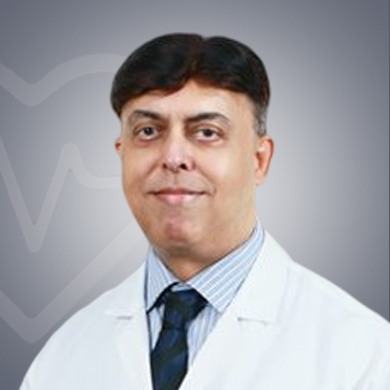
22 Years of experience
Speaks: English
General Laparoscopic Surgeon Salil Avinash Vengsarkar treats the following conditions:
Laparoscopic surgery is the best treatment option for many digestive problems even when these could be treated successfully with or medications or lifestyle changes. The General Laparoscopic Surgeon performs “minimally invasive” surgery to treat various digestive conditions. Laparoscopic surgery is preferred for the treatment of diseases like diverticulitis, gall bladder stones, and ulcerative colitis.
The conditions requiring laparoscopic surgery produce different symptoms ranging from mild to severe. Some of these signs and symptoms include:
The symptoms are caused by a disorder that affects the abdomen or pelvis and could vary greatly as the nervous system controls many various body functions.
You can consult Dr Salil Avinash Vengsarkar from 11 am to 5 pm (Monday to Saturday). The doctor is not available on Sunday.
Dr Salil Avinash Vengsarkar is a renowned General Laparoscopic Surgeon who performs a number of popular procedures mentioned below:
Gallbladder surgery is one of the most common laparoscopic procedures performed to remove the gallbladder. It is done using minimally invasive laparoscopic surgery. This approach allows the removal of the gallbladder without much pain and discomfort. During laparoscopic gallbladder removal, the surgeon inserts a laparoscope through a small incision. The laparoscope provides a clear view of the internal organs.

Share Your Experience about Dr. Salil Avinash Vengsarkar

A General Laparoscopic Surgeon is a doctor who is trained in laparoscopic surgery, also called minimally invasive surgery/keyhole surgery, The surgeon evaluates the condition of the patient completely so that the actual condition can be identified and a treatment plan can be designed. A General Laparoscopic Surgeon also cares for people having different conditions like Cholecystitis, Hernias, and Appendicitis, etc. The surgeon is part of a surgical team that includes anesthesiologists, nurses, and surgical technicians. You may like to talk to the surgeon about the procedure prior to surgery.
A General Laparoscopic Surgeon performs the below-given tests to diagnose underlying conditions:
It is important to discuss your symptoms with your doctor so that they can assess the symptoms and recommend some tests to know the underlying condition causing the symptoms. The doctor then designs your treatment based on the test report.
There are many reasons to see a general laparoscopic surgeon. Your primary doctor will evaluate your condition and will suggest you see a general laparoscopic surgeon if they find that the condition of the abdomen would need laparoscopic surgery. Some of the symptoms which require a consultation with a General Laparoscopic Surgeon are: